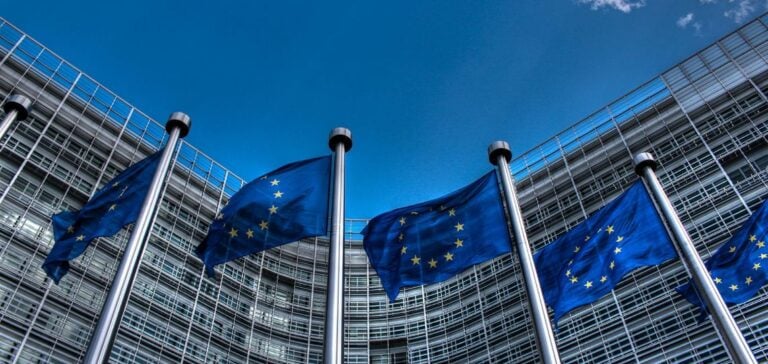The European Union (EU) has decided to tighten its sanctions against Russia by banning the transshipments of liquefied natural gas (LNG) in its ports from March 2025. This measure is part of the bloc’s ambitious objectives to completely phase out Russian fossil fuel imports by 2027.
Adopted last June, the EU’s 14th sanctions package also prohibits the supply of goods, technologies, and services to LNG projects under construction in Russia. The ban primarily targets transshipments and ship-to-ship (STS) transfers that facilitate the delivery of Russian LNG to Asia while bypassing local infrastructure limitations.
A European Response to the Energy Crisis
Despite these restrictions, Russian LNG still represents a significant portion of the EU’s gas imports. In 2024, around 14.9 million tons of Russian LNG were imported, up from 13.9 million tons in 2023. However, the transshipment ban could accelerate the diversification of supply sources, notably by reinforcing partnerships with the United States and Qatar.
Terminals in Northwest Europe, such as those operated by Fluxys in Zeebrugge (Belgium) and Elengy in Montoir-de-Bretagne (France), play a key role in these transshipment operations. Both operators have confirmed their compliance with the EU’s new rules, stating that they have adjusted their operational protocols to meet regulatory requirements.
Limited Economic but Strategic Impact
According to analysts, the transshipment ban will have a limited impact on the volume of LNG imported by Europe but could complicate Russia’s logistics chains, especially for cargoes destined for Asia. Meanwhile, the European market remains highly in demand, with import infrastructure expanding rapidly, supported by floating storage and regasification units (FSRUs).
However, terminal operators such as Fluxys underline that the extent of the economic repercussions remains challenging to predict. Long-term contracts reserved for reloading and regasification services of Russian LNG may be partially revised, but growing opportunities for other suppliers mitigate these uncertainties.
Russia’s Response and Global Prospects
On their side, Russian authorities view these new sanctions as a Western attempt to curb the expansion of their gas industry. The Russian LNG Association expects that new capacities from the United States and Qatar will gradually replace their supply in the European market.
As part of its 15th sanctions package, the EU has also intensified measures against the Russian maritime fleet, adding the LNG tanker Christophe de Margerie to its sanctions list. This emblematic vessel, used for transporting LNG from the Yamal site, highlights the strategic importance of this industry for Russia.
In parallel, the EU continues its efforts to reduce energy dependency while adapting to fluctuating domestic demand. With LNG prices remaining volatile in recent weeks, European companies are signing long-term contracts to secure supplies.






















